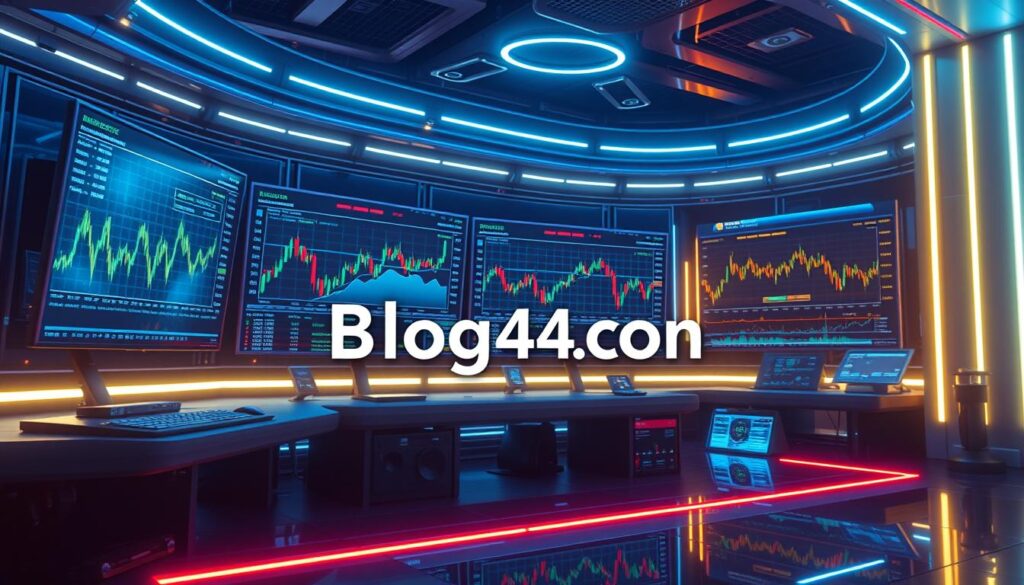Cryptocurrency has become a global phenomenon, and the demand for secure and efficient trading platforms has never been higher. With over $36 billion in trades registered by Binance, one of the top crypto exchanges, by the beginning of 2021, the industry has clearly taken the world by storm. As an investor, navigating the vast landscape of cryptocurrency exchanges can be daunting. But understanding the key features and benefits of these platforms can help you make informed decisions and maximize your trading experience.
Key Takeaways
- Cryptocurrency exchanges are platforms that allow traders to buy and sell digital assets, including cryptocurrencies, derivatives, and other crypto-related products.
- Top crypto exchanges like Binance, Gemini, and Coinbase offer features such as high liquidity, user-friendly interfaces, and robust security measures.
- Coinbase, the largest exchange in the United States, has customers in over 190 countries and processed trading volumes exceeding $2 billion at the start of 2021.
- Crypto exchanges provide access to a wide range of cryptocurrencies, with some platforms supporting hundreds of digital assets for trading.
- Factors to consider when choosing a crypto exchange include security, fees, user experience, and the availability of advanced trading tools and resources.
Understanding Crypto Exchanges
Crypto exchanges are online platforms for trading cryptocurrencies and digital assets. They are key in the altcoin marketplaces, providing a safe and efficient place for trading. Users can buy, sell, and exchange various digital assets, like Bitcoin and Ethereum.
What is a Crypto Exchange?
A cryptocurrency exchange is an online platform for buying, selling, or trading digital assets. It’s where most cryptocurrency transactions happen. These platforms offer easy-to-use interfaces and advanced tools for both new and experienced investors.
Types of Crypto Exchanges
- Centralized Crypto Exchanges (CEX): These exchanges act as intermediaries, matching buy and sell orders using an order book system. Examples include Binance, Coinbase, and Kraken.
- Decentralized Crypto Exchanges (DEX): These exchanges operate without a central authority, utilizing blockchain technology and smart contracts to facilitate peer-to-peer trading. Examples include Uniswap and SushiSwap.
Benefits of Using Crypto Exchanges
- Access to a wide range of digital assets: Crypto exchanges allow users to trade many different cryptocurrencies and digital tokens. This gives users a chance to explore various altcoin marketplaces.
- Competitive fees: Many crypto exchanges have low transaction fees. This makes trading digital assets more affordable for users.
- Advanced trading features: Crypto exchanges often have advanced trading tools. These include order types, charting, and margin trading. They cater to both new and experienced traders.
Understanding the different types of crypto exchanges and their benefits helps users choose the right platform. This choice depends on their investment goals and risk tolerance within digital asset exchanges.
Factors to Consider When Choosing an Exchange
When picking a crypto exchange, look beyond just the coins they offer. Security, fees, and how easy it is to use are key. These ensure your money is safe and trading is smooth.
Security Features
Choose exchanges that focus on security, like Gemini. It has SOC 1 Type 2 and SOC 2 Type certifications. This shows they’re serious about keeping your money safe. These exchanges also keep all your money in reserve, adding to the safety.
Fees and Charges
Fees for crypto exchanges can differ a lot. Some offer good rates that get better as you trade more. You might pay about 0.25% for immediate trades and 0.10% for slower ones.
Buying with a card can cost up to 5%. But, using a bank transfer might only cost 0.5% or even nothing.
User Experience
The ease of use is very important, even more so for new traders. Coinbase is great for beginners because it’s easy to use. It also has lots of resources to help you learn.
Good customer support is also key. Look for exchanges that offer help through FAQs, chat, or email.
| Feature | Explanation |
|---|---|
| Liquidity | Higher liquidity means better prices and easier trades. Big exchanges usually have more liquidity. |
| Limits and Restrictions | Watch out for limits on deposits, withdrawals, and trades. These can affect how you move your money and trade. |
| Regulatory Compliance | Make sure exchanges follow local laws like AML and KYC. They should also be open about where they operate. |
By looking at these important points, you can choose a crypto exchange that meets your needs. It should be safe, affordable, and easy to use.

Top Centralized Crypto Exchanges
In the world of cryptocurrency trading, Binance, Coinbase, and Kraken lead the way. These platforms offer easy and reliable access to the markets. They are the top choices for many.
Binance
Binance started in 2017 and quickly became the largest by volume. It offers a wide range of trading options. This includes spot, futures, and margin trading.
The platform is easy to use and has advanced tools. It’s a hit with both new and seasoned traders.
Coinbase
Coinbase was founded in 2012 and is the biggest in the US. It provides trading, storage, and even a debit card. Its design is simple, making it great for beginners.
Coinbase also offers lots of educational resources. These help users understand cryptocurrency trading better.
Kraken
Kraken is one of the oldest exchanges and is known for its security and education. It offers spot, margin, and futures trading. It’s a favorite among experienced traders and big investors.
These top exchanges make it easy and safe to get into cryptocurrency. They have many trading options, strong security, and are easy to use. They are trusted by many in the crypto world.
“Centralized exchanges play a key role in the crypto world. They offer a way for both new and experienced traders to get into the digital asset markets.”
Best Decentralized Crypto Exchanges
Decentralized crypto exchanges (DEXs) are becoming more popular. They offer a different way to trade compared to traditional exchanges. Uniswap and SushiSwap are two top choices.
Uniswap
Uniswap is a leading exchange on the Ethereum blockchain. It was launched in 2018. It’s known for its easy-to-use interface and unique liquidity model.
Users can trade ERC-20 tokens directly from their wallets. This means no need for third-party services. The platform’s smart contracts ensure safe and clear transactions. This way, users keep full control over their funds.
SushiSwap
SushiSwap was introduced in 2020. It’s built on Ethereum, similar to Uniswap. But it also offers yield farming and liquidity mining.
This makes it a favorite for traders looking to earn more. SushiSwap focuses on rewarding users, making it a top choice for many.
Both Uniswap and SushiSwap are big in DeFi. They offer a secure and private way to trade. Users can trade without sharing personal info or losing control of their assets.

The demand for DeFi solutions is rising. This means Uniswap and SushiSwap will likely stay popular. They show how blockchain can make finance more open and empower traders.
Unique Features of Each Exchange
Exploring digital asset exchanges reveals their unique features. These features help attract and keep traders in the altcoin marketplaces and digital asset exchanges.
Customer Support Options
Good customer support is key for any crypto exchange. Gemini and Coinbase offer lots of educational resources and support teams. They help users with their questions and worries.
Platforms like PrimeXBT and Bybit also shine with their 24/7 live chat and email support. They ensure traders get help whenever they need it.
Trading Tools and Resources
The top crypto exchanges offer more than just basic trading. Gemini, for example, has an ActiveTrader interface with advanced charts and fast order execution. Binance, with over 350 supported cryptocurrencies, meets the needs of diverse traders.
Commissions and Fee Structures
Fees and commissions affect a trader’s profits. Exchanges like Huobi Global use percentage-based fees. Others, such as OKX, offer flat fees for big traders. Knowing each exchange’s fee structure helps users improve their trading and returns.
Traders can find the best exchange by looking at its unique features. Whether it’s support, tools, or fees, the right exchange is vital for success in altcoin marketplaces and digital asset exchanges.
Comparing User Interfaces
The user interface (UI) of a crypto trading platform is key to a good trading experience. Top cryptocurrency trading platforms like Coinbase and Gemini focus on easy-to-use interfaces. They make it simple for traders to buy, sell, and manage their digital assets.
Mobile apps from Crypto.com add extra features like real-time price tracking and alerts. This helps traders stay updated and make smart choices on the move. XBO also makes buying, selling, and managing bitcoin exchanges easy and straightforward.
Some exchanges let you customize the platform to fit your needs. You can personalize the dashboard, create custom views, and access many tools. Kraken and Bybit are great for experienced traders who want control over their trading space.
Choosing a crypto exchange depends on your trading style and goals. Look at the user interface and experience to find the best platform for you. This way, you can confidently navigate the cryptocurrency market.
“The user interface of a crypto exchange can make or break the trading experience. Exchanges that prioritize simplicity, customization, and mobile accessibility are often the ones that attract and retain the most loyal users.”

How to Set Up Your Account
Setting up an account on a crypto exchange is easy. But, it’s key to know the steps. Whether it’s a fiat-to-crypto gateway or a regulated crypto bourse, the process is designed to follow rules and keep your assets safe.
Creating an Account
The first step is to create an account on your chosen crypto exchange. You’ll need to give your personal info, like your name, birthdate, email, and contact details. Many exchanges also ask you to set up two-factor authentication (2FA) for extra security.
Verification Process
After creating your account, you’ll need to verify it. This is important for following anti-money laundering (AML) and know-your-customer (KYC) rules. You might need to show a government ID and proof of address, like a utility bill or bank statement.
Funding Your Account
Once your account is verified, you can add funds. You can use bank transfers, credit/debit cards, or even direct cryptocurrency deposits. Some exchanges, like Cash App Investing, let you start trading with just $1. They even offer features like converting part of your paycheck into bitcoin.
By following these steps, you’ll be ready to explore the world of cryptocurrencies. You’ll get to enjoy the many trading options available through fiat-to-crypto gateways and regulated crypto bourses.
Best Practices for Trading on Exchanges
Trading in cryptocurrency markets needs a smart plan. To do well, you must manage risks well and keep up with market changes.
Risk Management Strategies
Crypto markets are very volatile. This makes managing risks very important. Using two-factor authentication (2FA) is a top choice for 95% of users for security.
Choosing exchanges with no security breaches is also key. These exchanges make users 78% happier. Using stop-loss orders can also protect your money and manage risks.
Staying Updated with Market Trends
It’s vital to know the latest market news. Use tools and resources from trusted exchanges like Kraken and Binance. This helps you understand the crypto world better.
Also, following industry news and talking with the crypto community helps. It lets you predict market changes and adjust your plans. Being informed helps you handle the fast changes in crypto markets.

| Metric | Statistic |
|---|---|
| Two-factor authentication (2FA) preference | 95% of surveyed users |
| User satisfaction for exchanges with zero security breaches | 78% higher |
| Reduction in crypto-assets due to stringent listing methodologies | 40% fewer on highly regulated exchanges |
| Trader preference for exchanges with high liquidity | 85% to minimize price slippage |
| User preference for mobile trading apps | 67% for improved user experience |
| Decrease in user satisfaction due to hidden fees or high charges | 60% on average |
| Traders who regard responsive customer support as critical | 72% |
| Impact of geographical restrictions on user access | Up to 30% on exchanges with limited regional services |
By using good risk management and staying current with market trends, you can trade with more confidence. This way, you can improve your chances of success on crypto platforms and exchanges.
Future Trends in Crypto Exchanges
The crypto market is always changing. Decentralized finance (DeFi) platforms and more rules are shaping the future of crypto exchanges. DeFi offers new ways to trade and earn interest on cryptocurrencies. Exchanges are adding DeFi features or launching their own DeFi products.
Rules are also changing a lot. Exchanges are focusing on following these rules to stay in business for the long term.
The Rise of DeFi Platforms
DeFi platforms are becoming more popular because they don’t hold user funds. This is attracting more crypto fans. Exchanges are adding DeFi features like yield farming and staking to let users earn money without doing much.
They also support non-custodial wallets. This lets users work directly with DeFi protocols. It opens up more trading options on crypto exchanges.
Regulation and Compliance Changes
Regulators are getting stricter with crypto. Exchanges are making sure they follow the rules to stay open. They’re using better KYC and AML checks and new security tools like multi-signature wallets and AI for threats.
Also, regulated crypto bourses are coming up. They offer a safer and clearer place to trade. This is good for people who want to invest more seriously.
FAQ
What is a crypto exchange?
Cryptocurrency exchanges are platforms where traders can buy and sell digital currencies. They also trade derivatives and other crypto-related assets. These exchanges come in different types, like centralized and decentralized exchanges.
What are the benefits of using crypto exchanges?
Using crypto exchanges offers many benefits. You get access to a wide range of digital assets. You also enjoy competitive fees and advanced trading features. These exchanges are great for both new and experienced traders, with some focusing on derivatives trading.
What factors should you consider when choosing a crypto exchange?
When choosing a crypto exchange, look at security features, fees, and user experience. Top exchanges focus on security, have competitive fees, and are easy to use. They cater to both beginners and experienced traders.
What are the top centralized crypto exchanges?
Binance, Coinbase, and Kraken are among the top centralized exchanges. They offer a wide range of trading options. This includes spot trading, futures, and margin trading for some users.
What are the best decentralized crypto exchanges?
Uniswap and SushiSwap are top decentralized exchanges (DEXs). They offer peer-to-peer trading without intermediaries. These platforms use smart contracts for trades and provide features like yield farming and liquidity provision.
What unique features do different crypto exchanges offer?
Crypto exchanges offer unique features to attract users. They have advanced trading tools, educational resources, and leverage options. Exchanges also vary in their fee structures and commission models.
How do the user interfaces of crypto exchanges compare?
User interfaces are key to the trading experience. Exchanges have intuitive interfaces for desktop and mobile. They focus on ease of use and customization to meet individual needs.
What is the process of setting up an account on a crypto exchange?
Setting up an account involves creating an account, verifying your identity, and funding your account. The steps and options may differ among exchanges.
What are the best practices for trading on crypto exchanges?
Successful trading requires risk management and staying informed about market trends. Exchanges offer advanced features and educational resources. These help users develop strategies and understand market volatility.
What are the future trends in the crypto exchange industry?
The future of crypto exchanges will be shaped by DeFi and evolving regulations. Exchanges are adapting by adding DeFi features or launching their own DeFi products. They also focus on compliance for long-term success.


















